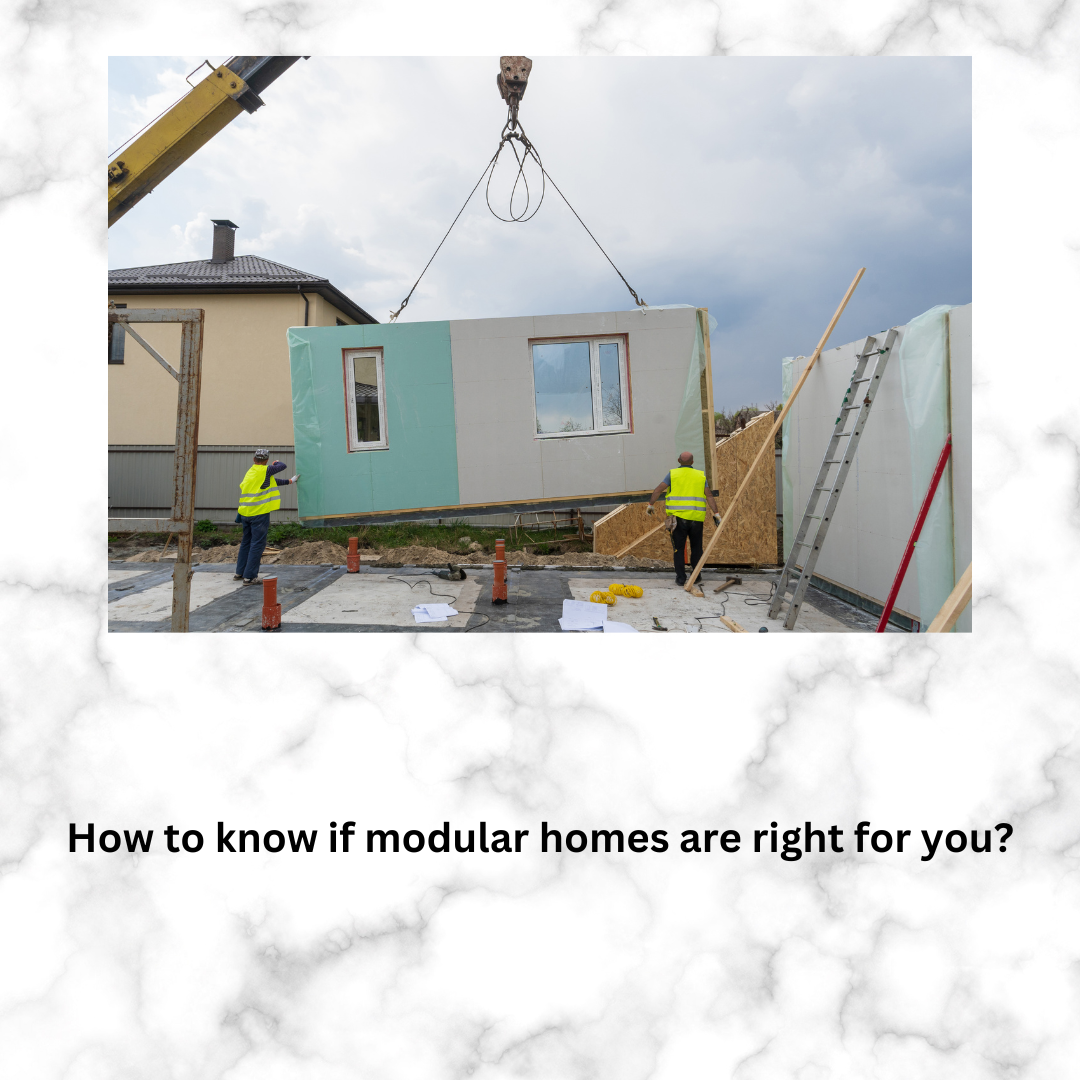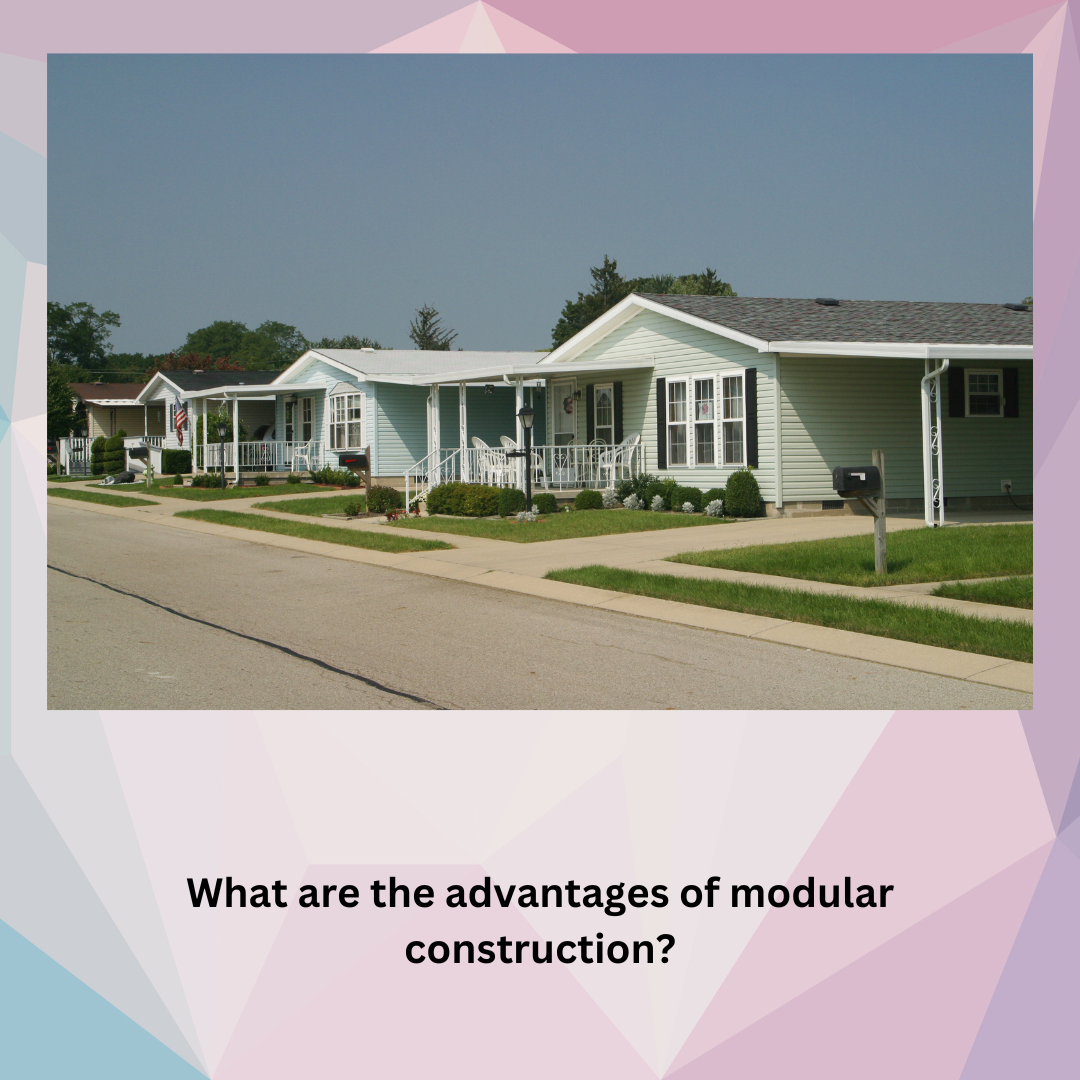When you think of the idea of building your own home or car, you may immediately see some benefits and advantages. After all, who doesn’t want to have some control over their own lifestyle? But what is not so obvious is how many disadvantages are involved with the practice as well – which can be a good thing! It’s important to understand what the disadvantages are before investing your time and money in this pursuit.
Modular homes are residences that are constructed in a factory in sections, often known as modules, and are later assembled on the site where they will be lived in. They are a form of prefabricated housing, which implies that their construction takes place in a factory rather than on the land where the house will be located. Because they are assembled in a factory setting, modular homes are able to be erected in a shorter amount of time while yet maintaining the same level of quality as traditional homes.
This is possible because modular homes are created to conform to the same building codes as traditional homes. The modules are normally delivered to the construction site on flatbed trucks, and once they arrive, a crane is used to hoist them into position. After they have been put together, they are finished and connected to their respective utilities in the same manner as a conventional house would be. Traditional houses are typically more expensive than their modular counterparts, but modular houses can be fashioned in such a way as to fulfill the particular requirements and whims of the homeowner.
How to know if modular homes are right for you
The first thing to consider before changing your lifestyle with modular construction is if it’s right for you. If you have the income and are willing to put the time and effort into this, there are many benefits to choosing a modular home. However, be sure that it’s a good fit for your situation. Despite the many differences between them, there are some similarities as well. And, the more you know about modular construction, the better equipped you will be to make the right decision.

There are a few ways to find out if modular construction is right for you. First, ask yourself whether you have the time and patience to learn the construction process, or if you’d prefer a more streamlined process that requires less time and effort. Another consideration is whether you want to be more involved with the building process or if you’d prefer a hands-off approach.
There are a few factors to consider when deciding whether modular homes are right for you:
- Cost: Modular homes can often be more affordable than traditional homes, especially if you are building in an area with high construction costs.
- Speed of construction: Because modular homes are built in a factory, the construction process can be faster than traditional on-site construction. This can be especially beneficial if you need to move into a new home quickly.
- Customization: Modular homes can be customized to meet your specific needs and preferences. You can choose from a variety of floor plans and finishes, and you can even make changes to the layout of the home.
- Quality: Modular homes are built to the same building codes as traditional homes, so they are just as safe and durable. They are also built in a controlled factory environment, which can help to reduce the risk of weather-related delays and other construction issues.
- Resale value: Modular homes may not appreciate in value as much as traditional homes, but they can still be a good investment if you plan to live in the home for a long time.
Ultimately, whether modular homes are right for you will depend on your specific needs, preferences, and budget. It’s a good idea to research and compare the costs, benefits, and drawbacks of modular homes versus traditional homes before making a decision.
What are the advantages of modular construction?
As we mentioned earlier, one of the first things that come to mind when you think about modular homes is how much control you’d have over the process. Since you design and build your own home, you have complete control over every aspect of the construction. This allows you to make many design decisions that you may not have been able to make otherwise.

Additionally, since you’re designing and building the home yourself, you know exactly what’s happening throughout the process. You don’t have to rely on other companies to complete various tasks, and you’re able to be more involved with the whole experience. Another thing to keep in mind is that modular construction allows you to build in a way that works best for your lifestyle. There are many types of homes that can help maximize space, including the vernacular style. Inverness vernacular homes are a popular option for mountain residents.
A modular home can also be an ideal option for families that want to move as a unit. Depending on the type of home you choose, you might also be able to save money by building your own home.
Modular construction has several advantages over traditional on-site construction:
- Faster construction: Modular homes are built in a factory, which means that the construction process can be faster than traditional on-site construction. This is because the construction takes place in a controlled environment where weather-related delays and other issues are minimized.
- Cost savings: Modular homes can often be more affordable than traditional homes, especially if you are building in an area with high construction costs.
- Quality control: Because modular homes are built in a factory, the quality of the construction can be more consistent than traditional on-site construction. This is because the construction process is more standardized and there is less risk of errors or issues caused by weather or other external factors.
- Energy efficiency: Modular homes can be built to be energy-efficient, which can help to reduce your energy bills and your carbon footprint.
- Customization: Modular homes can be customized to meet your specific needs and preferences. You can choose from a variety of floor plans and finishes, and you can even make changes to the layout of the home.
- Sustainability: Modular construction can be more sustainable than traditional on-site construction because it generates less waste and uses fewer resources.
- Safety: Modular homes are built to the same building codes as traditional homes, so they are just as safe and durable. They are also built in a controlled factory environment, which can help to reduce the risk of accidents on the construction site.
Disadvantages of modular construction
While modular construction can provide an incredible amount of control and flexibility during the design and building process, it also comes with some significant disadvantages. For example, modular homes can be more costly to build than other types of homes.
And when it’s time to sell, you may need to wait longer to find a buyer. Additionally, if you have access to land that is ideally flat and level, a modular home may not be the best option.
Modular homes are constructed by stacking sections and then bolting them together. If there are any obstacles on your land, you may not be able to build a modular home that’s as efficient as a conventional one.
While modular construction has many advantages, it also has some potential drawbacks:

- Limited design options: Modular homes may have fewer design options than traditional homes, especially if you are building in a more rural or remote area.
- Limited customization: While modular homes can be customized to some extent, they may not offer as much flexibility as traditional homes. For example, it may be difficult to make major changes to the layout of a modular home once it has been designed.
- Resale value: Modular homes may not appreciate in value as much as traditional homes, especially in areas where traditional homes are more prevalent. This can be a concern if you are planning to sell the home in the future.
- Financing: It may be more difficult to get a mortgage for a modular home than for a traditional home, especially if you are building in a more rural or remote area.
- Transport: Modular homes are built in sections and then assembled on site, which means that they must be transported to the building site. This can be a logistical challenge if you are building in a more rural or remote area.
- Limited contractors: There may be fewer contractors available to work on modular homes, especially if you are building in a more rural or remote area. This can make it more difficult to find someone to finish the home once the modules have been assembled.
Ultimately, whether modular construction is right for you will depend on your specific needs, preferences, and budget. It’s a good idea to research and compare the costs, benefits, and drawbacks of modular homes versus traditional homes before making a decision.
How much does a modular home cost?
As modular homes are a type of construction that is more flexible than others, the price will vary between modular manufacturers. If you choose a prefabricated home, you may be able to find one for as low as $80,000. But if you design and build your own home, you may pay as much as $400,000 or more. While the costs will vary depending on the home design, you can expect to pay more for something that allows you to customize it to your needs.
Which type of home should you buy?
There are many benefits to modular construction, but the best way to determine if it’s the right choice for you is to talk to current homeowners who live in modular homes. If you’re interested in exploring modular construction but aren’t sure where to start, ask your real estate agent for some suggestions. Or, you can search online for modular homeowners in your area. Doing so will allow you to connect with others who are interested in exploring the idea. And while you’re researching modular homes, keep in mind that there are many different types. As with other types of homes, you can choose between a single-family home and a multi-family home.
Conclusion
Modular homes can give you a lot of control and flexibility over the design and construction process. And they’re often more affordable than other types of homes. If you’re interested in exploring modular construction, there are a few things to keep in mind first. Talk to potential homeowners and get a better understanding of what it’s like to live in a modular home. And, make sure that you pick the right type of home for your situation.


